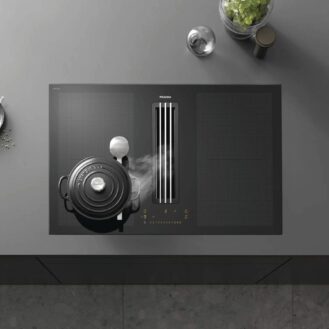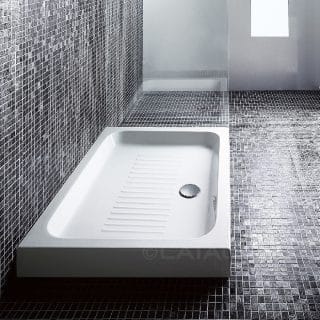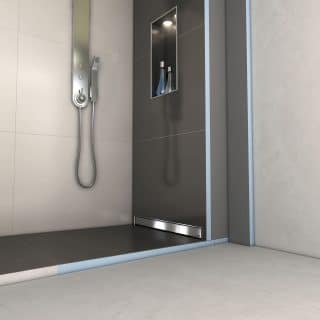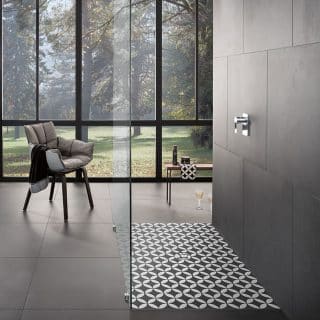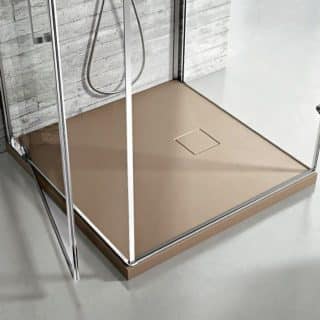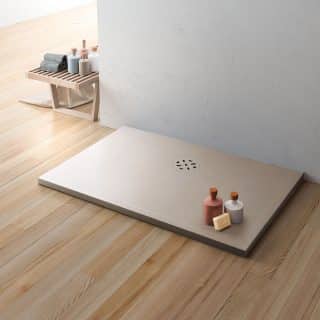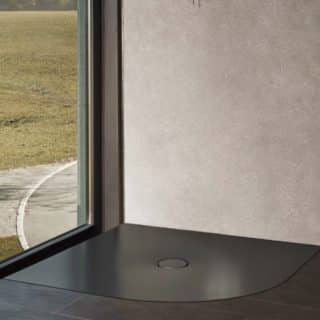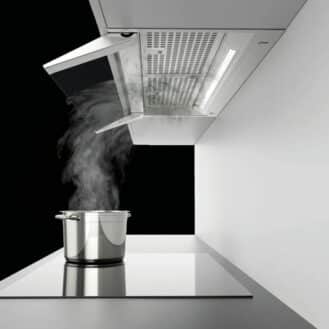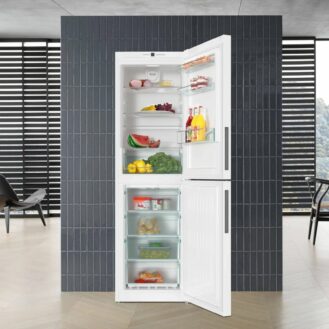Composites such as fiberglass and resin are common materials for shower bases. Many brands use their own special composites, such as Corian®, Pietraluce® and KRION®.
Resin includes rotomoulded polymer and polyester resin. Rotomolded polymer has a pleasant texture, while polyester resin has a highly resistant reinforced coating (fiberglass + gelcoat). Resin looks like stone but isn’t as heavy or as expensive.
- PRO: Durable, highly resistant to scratches and chipping
- PRO: Easy to clean
- PRO: Not as heavy as stone or steel, but has the look of stone
- CON: Requires regular cleaning; sandpaper and polishing compound is recommended.
- CON: On the pricey side
Fiberglass, a variety of reinforced acrylic, is easy to install and inexpensive.
- PRO: Affordable
- PRO: Lightweight, easy to install
- PRO: Damages are easily repaired
- CON: Possibly the most brittle material on the market
- CON: Porous, absorbs water and tends to crack.
- CON: Color and finish deteriorate with time from cleaning
Corian® is an exclusive solid-surface material newly used in the bathroom. It is easy to clean and is nonporous so stains do not penetrate the surface. If properly cleaned, it can resist the growth of mold, mildew and bacteria. It also resists scratching, stains, chips and cracks.
- PRO: Durable and easily repaired
- PRO: A non-porous material, easy to clean
- PRO: Retains water temperature
- CON: Somewhat heavy and relatively expensive
Pietraluce® is an exclusive shiny, water-proof, antibacterial material which is easy to maintain. Scratches and stains can be removed with a normal polishing paste. It’s too early to note disadvantages.
KRION® is an exclusive new generation antibacterial solid surface material developed by Krion, a company that belongs to the PORCELANOSA Group. It has sound insulation and a high mineral content and is 100% recyclable. It’s too early to note disadvantages.
